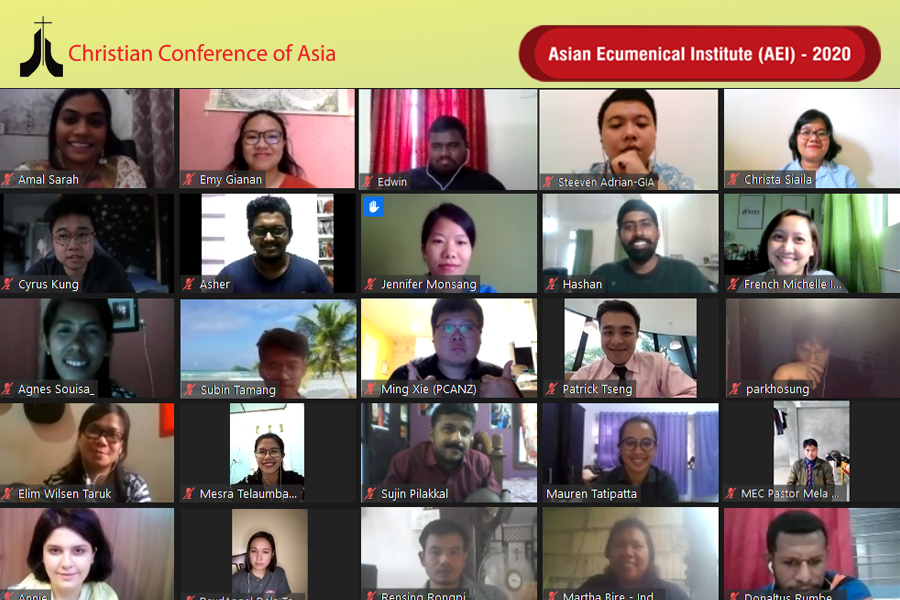AEI–2020 students affirm commitments to justice and pledge to serve their communities
 Students of AEI–2020 (partial only)
Students of AEI–2020 (partial only)
CHIANG MAI: At the end of the month-long annual ecumenical formation and leadership training, the Asian Ecumenical Institute (AEI) of the Christian Conference of Asia (CCA), the 36 students from across Asia who attended it collectively affirmed their commitments to faith and justice in all forms and also pledged to disseminate in their communities and congregations the lessons they learnt from AEI–2020.
The AEI–2020 concluded with the valedictory session on 30 November 2020. The students prepared and led the closing worship, which included elements from indigenous Asian religious traditions.
In his valedictory address, Dr Mathews George Chunakara, the General Secretary of the CCA, congratulated the students on successfully completing the month-long programme, despite the constraints caused by the COVID-19 pandemic.
The CCA General Secretary told the students that the course had trained them on all aspects of stewardship and that it was time for them to step up and take charge, putting into action all the insights and perspectives they had gained. While admiring the concrete proposals and plans of action suggested by many students for application in their local contexts, the General Secretary inspired and encouraged the AEI–2020 batch of students to stay connected, to network, to collaborate, and build bridges beyond boundaries, as the future was in their hands.
The students shared their reflections and learning at the end of the ecumenical formation and leadership development training programme.
Amal Sarah, a postgraduate student of environmental sciences who currently works at the diocesan women’s desk in the Church of Pakistan, found that the AEI made her realise that the problems afflicting Pakistan were common to several other countries. “I hope to work among rural congregations and raise awareness of the issues I learnt during AEI, especially those of climate action, eco-justice, gender justice, and human rights,” she shared.
Ming Xie, a theological student from the Presbyterian Church in New Zealand, said that the AEI experience had been inspiring. “I am able to relate the Word and the Work to the World,” he said.
He also called AEI a “mini Pentecost” that brought together people who spoke many languages with different expressions—from scattering to gathering. He highly appreciated the message of ecumenism and was keen on sharing his new insights with the youth groups in his local congregation.
Martha Bire, Managing Director of an NGO called The Eastern Indonesian Women Network from the Protestant Evangelical Church in Timor, Indonesia, found the lessons highly relevant to the work she does.
“The sessions on human rights has empowered me to enable my church to make more serious commitments to the fulfilment and realisation of human rights not just for those in our congregations, but for everyone in the region, regardless of their background or religion. As an activist and theologian, my task now is to connect the issues of human rights with the biblical message of love and inclusion,” she said.
The students appreciated the contributions by the resource persons and facilitators, a team that comprised 12 internationally reputed faculty members, as well as CCA staff.
A total of 36 students selected from various Asian countries attended the month-long training, which, being completely virtual, was a first-of-its-kind venture by the CCA.










